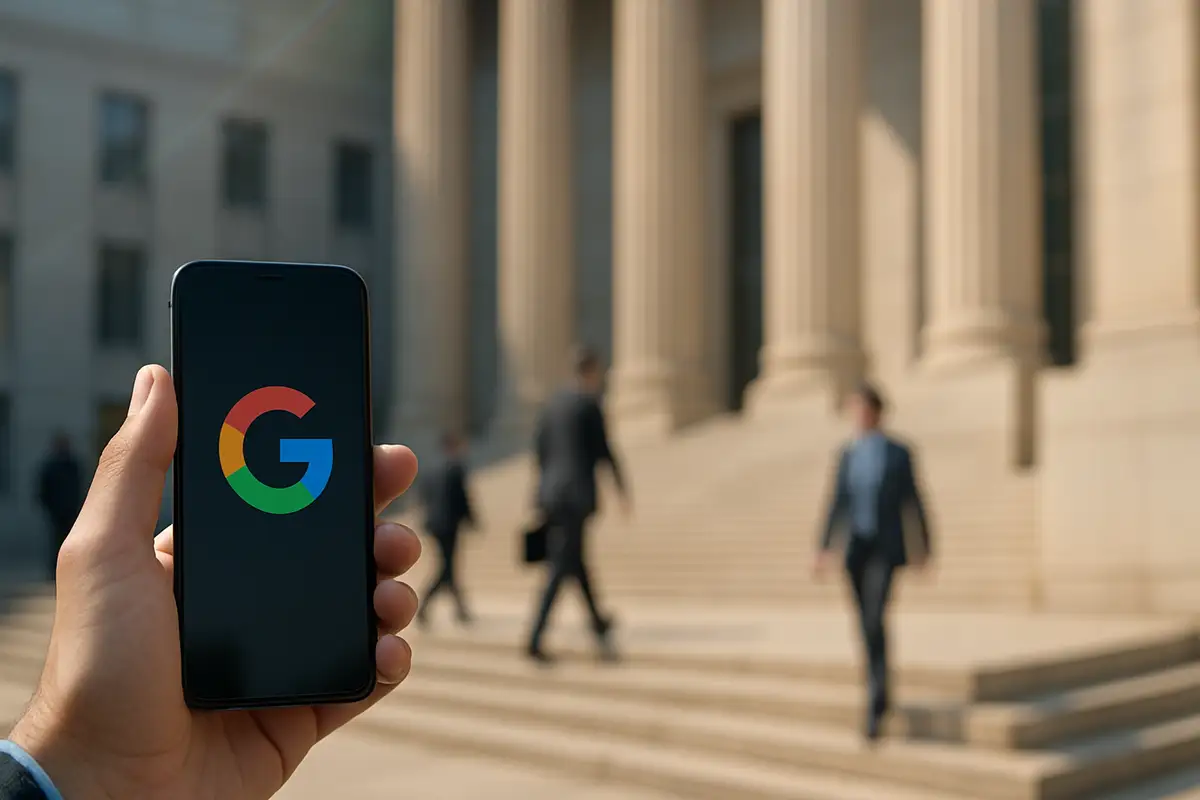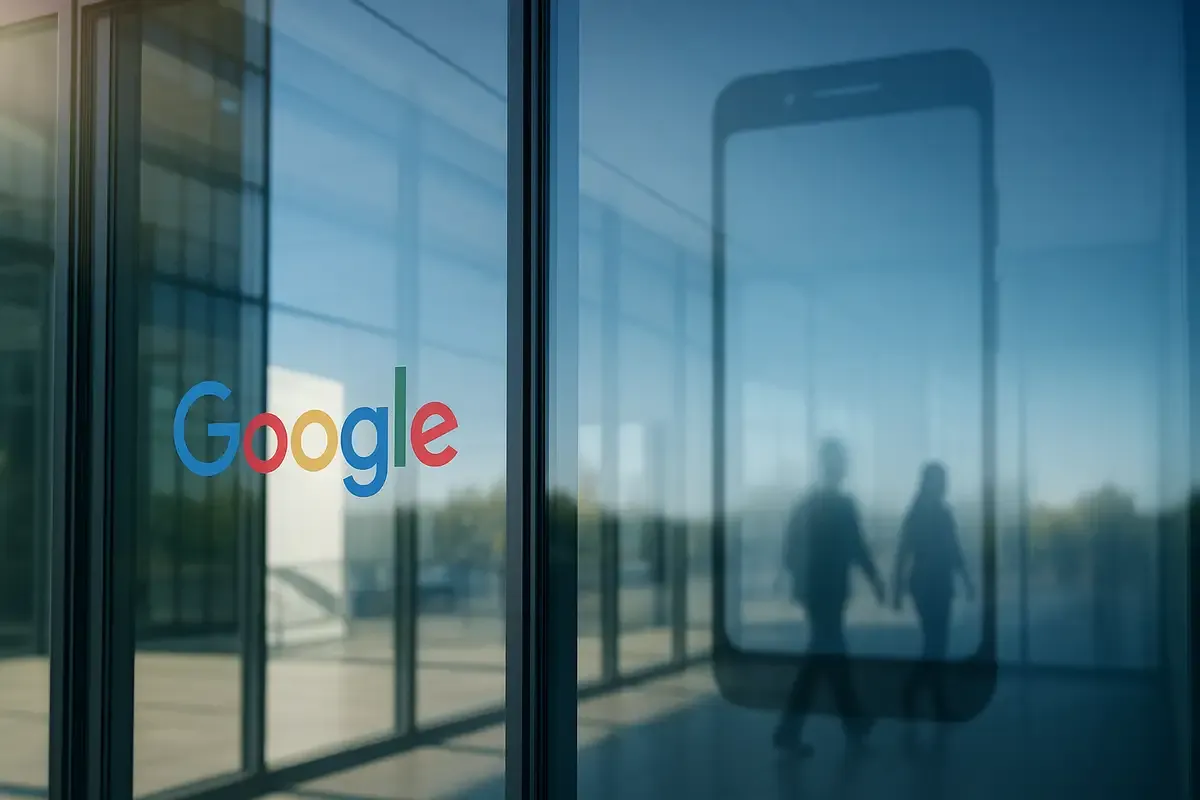💡 TL;DR - The 30 Seconds Version
⚖️ Federal judge orders Google to share search data and end exclusive distribution deals but allows default placement payments to continue.
💰 Apple can still collect billions from Google to keep it as Safari's default search engine, preserving the core monopoly mechanism.
🤖 Court reasoning assumes AI competition will naturally weaken Google's position, betting on future market changes rather than forced breakup.
📈 Alphabet stock surged on the ruling while rivals like DuckDuckGo face delayed, limited data access that may prove ineffective.
🌐 Default payment precedent could entrench AI assistant dominance across phones and browsers, extending Google's distribution advantage to new interfaces.
⚡ Other Big Tech antitrust cases involving Meta, Amazon and Apple will likely cite this AI-focused reasoning to avoid structural breakups.
A federal judge found Google illegally maintained its search monopoly—then stopped short of breaking anything up. In Mehta’s remedies ruling in the Google case, the court ordered data-sharing and limits on exclusivity, but allowed default payments and left Chrome and Android intact. Investors cheered. Rivals groaned. The incentives didn’t change.
What actually changed
Two things: Google must share portions of its search index and user-interaction data with “qualified competitors,” and it can’t lock in exclusive distribution contracts. Everything else is continuity. Payments for default placement survive, so Apple can still collect billions to favor Google in Safari and iOS settings. That is the ballgame.
The court’s logic leans on AI as a competitive force already reshaping search. If generative models and “answer engines” are displacing the old list-of-links paradigm, heavy surgery might be riskier than restraint. Hence, a nudge rather than a split. It’s a narrow fix.
The market got the message.
The AI logic—and its blind spots
Judge Amit Mehta wrote that courts aren’t built to “gaze into a crystal ball.” He’s right. But his order still bets on that future—one in which AI’s rise dilutes Google’s position. The near-term paradox is obvious: Google can fund default placement for its own AI surfaces while embedding Gemini-style answers at the top of search results.
Defaults mimic exclusives in practice because most people never change them. That dynamic doesn’t vanish in AI interfaces. If anything, it hardens. One tap becomes the whole funnel.
There is a second tension. Data-sharing sounds pro-competitive, yet enforcement will be slow, and privacy screens will be thick. Rivals may get stale or partial data after years of litigation. Google keeps the flywheel.
How the remedy travels
This ruling is not only about search. It sets a template for the next front, where AI assistants sit between users and the web. If default deals remain lawful, the mechanism that entrenched search dominance can entrench AI distribution on phones, browsers, and smart glasses. The venue shifts; the tactic persists.
Think of it as “default power.” The switch moves from a search bar to an AI pane, but the throttle is the same. A partner takes the check, a setting ships as the default, and the rest of the market competes for the opt-outs. Few do.
That’s how distribution moats scale.
Politics and global spillover
The administration says it’s doubling down on Big Tech cases even as it champions deregulation elsewhere. It’s a paradox on purpose: court fights at home; trade pressure abroad. Meanwhile, European regulators will read this remedy and recalibrate. If U.S. courts signal humility in fast-moving markets, Brussels may either push harder or also wait on “innovations” to do the work.
Either way, multinationals will forum-shop their compliance story. It’s a time-buying strategy.
The competitive temperature, right now
Wall Street’s reaction—Alphabet up sharply, Apple lifted—says this remedy is a relief, not a reset. Rivals like DuckDuckGo and Perplexity get a potential data lifeline, but it is thin and delayed. Microsoft benefits at the margins, yet default payments will keep shaping the funnel on the devices that matter most.
Downstream cases will test whether this becomes the playbook. A Virginia court still must decide remedies in Google’s adtech suit. The Meta monopolization case awaits its own endgame. Amazon and Apple face trials on longer horizons. All will cite the same AI-is-changing-everything passage. Expect that line to travel.
The lesson for product teams is unglamorous but urgent: distribution beats features. If you don’t own the default, you build to be buried by one. If you do, AI helps you lock it tighter.
Limits and risks the court chose
The judge rejected the most aggressive asks—Chrome/Android divestiture and a clean ban on default payments—on grounds of collateral damage and administrability. That conservatism has costs. Enforcing data-sharing will be slow and lawyered; policing “non-exclusive” deals will invite hair-splitting about what counts as exclusive in a world of single-slot defaults.
The real risk is path dependency. If AI interfaces become the new operating layer, today’s gentle remedy could cement tomorrow’s gatekeeper.
Why this matters
- Default power is policy. Leaving default payments intact preserves the mechanism that built Google’s search dominance—and lets it migrate that leverage to AI interfaces on phones and browsers.
- Precedent travels. Courts just blessed a light-touch remedy as AI reshapes distribution. Expect Apple, Amazon, Meta, and others to cite it to avoid structural fixes in their own cases.
❓ Frequently Asked Questions
Q: How much does Google actually pay Apple to be Safari's default search engine?
A: Google paid Apple an estimated $20 billion in 2022 to remain Safari's default search engine, representing roughly 15-20% of Apple's annual profits. These payments have grown from $1 billion in 2014, making Apple heavily dependent on Google's search revenue.
Q: What specific search data will Google have to share with competitors?
A: Google must provide "qualified competitors" with portions of its search index (the database of web pages) and user-interaction data showing which results people click. However, the court didn't define "qualified" or specify data freshness, leaving enforcement details for later litigation.
Q: Why didn't Judge Mehta break up Google or force it to sell Chrome?
A: Mehta rejected structural remedies, citing potential "collateral damage" and administrative complexity. He argued that AI competition might naturally weaken Google's position, making aggressive intervention premature. The court preferred "surgical" fixes over corporate surgery.
Q: When do these changes actually take effect for users?
A: The data-sharing requirements begin within 60 days, but enforcement will likely take years through appeals and compliance disputes. Default search payments continue immediately, so iPhone and browser users won't see immediate changes to their search experience.
Q: How does this ruling affect the other Big Tech antitrust cases?
A: Meta, Amazon, and Apple can now cite this precedent to argue for lighter remedies in their own cases. The ruling's emphasis on AI disruption as natural competition gives other tech giants a template to avoid structural breakups.














